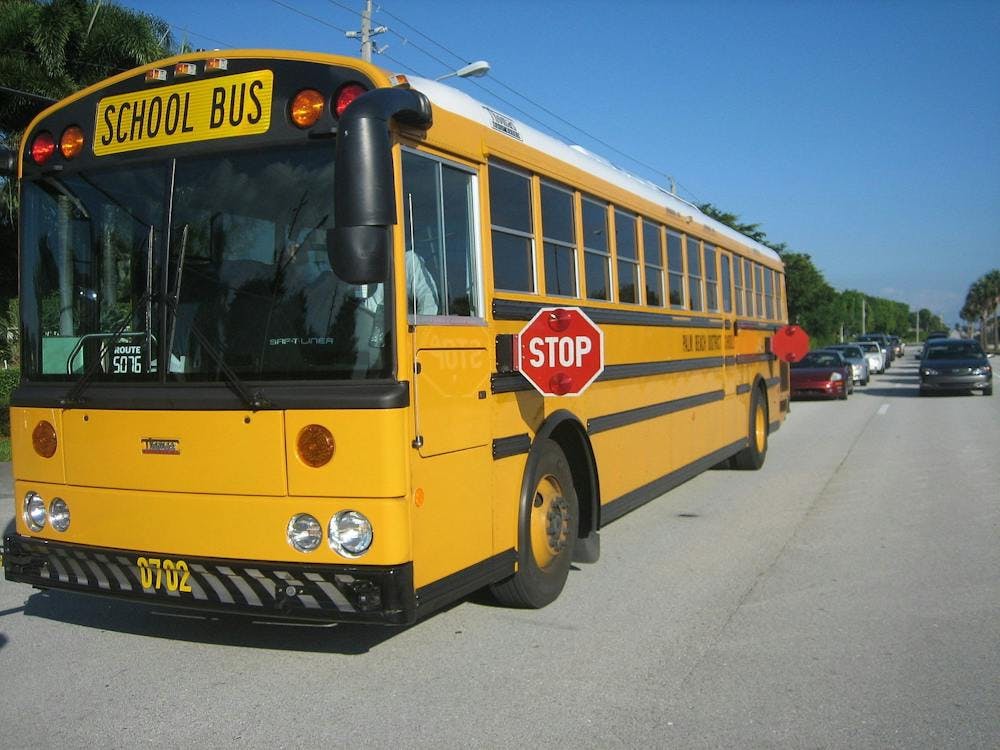As Charlottesville High School faces the aftermath of rising rates of violence at the school and three canceled days of school due to a lack of personnel, teachers at the University and other community groups have assisted in the school’s response. Faculty from the University’s School of Education and Human Development were present at development sessions with Charlottesville High School teachers aiming to address underlying issues.
Conflict and violence at CHS have been on the rise this school year, with reports of physical fights as often as once per week, disruptive behavior in the classroom and, most recently, of an 18-year old intruder who contributed to a fight on campus. Tensions reached a head on Nov. 17 when parents received a morning notice of classes being canceled after 27 teachers called out of work following two fights that required police presence at the school.
CHS initially planned to reopen Monday of the following week, but after a closed-door meeting, the Charlottesville School Board and Superintendent Dr. Royal Gurley decided that classes would be canceled Nov. 20 and 21 and only teachers would come in for development sessions. The School Board released an announcement stating that the purpose of the teacher work days was to provide further opportunity to address the school’s issues.
“[The cancellation will] allow administrators and staff to continue planning for a ‘reset’ of school policies, procedures, and culture so that we can return to our core purpose – offering a safe learning environment in which our students will grow and thrive,” the statement read.
In light of the University’s recent push to bolster its impact in Charlottesville, some members of the University who specialize in education attended the teacher work day meetings at Charlottesville High School. Dr. Stephanie Rowley, dean of the University’s Education School, said faculty from Education’s counselor education and educational psychology programs were particularly involved with the efforts because of the relevance of their expertise. University faculty helped to facilitate teacher activities and contributed to conversations about possible solutions.
Rowley emphasized the importance of the University’s involvement with the broader community, particularly in relation to University President Jim Ryan’s 2030 plan and its commitment to being both “great and good” neighbors to Charlottesville.
“The emphasis is really around thinking about ourselves as an anchor in the community,” Rowley said. “I think we have a responsibility as a public institution [and] as people who are governed by the 2030 plan to really be serious about being good neighbors and taking an active role.”
The problems facing Charlottesville High School are not entirely unique. Schools across the nation have seen similar increases in violence and mental health issues, frequently attributed to lingering effects of the COVID-19 pandemic and remote instruction.
A nationwide survey of 362 school counselors conducted by the New York Times highlighted this trend — almost 75 percent of counselors reported that their students have increased difficulty resolving conflict following the pandemic and 51 percent noted an increase in the number of physical fights. Rowley said that the effects of these issues are weighing on Charlottesville’s teachers.
“There’s pretty good evidence that after decades of improvements in school safety, post-pandemic, we’ve started to see some increases [in violence],” Rowley said. “It’s really hard for students to come back to school after COVID. And, you know, we see really increasing mental health problems among students and increasing mental health problems among teachers.”
Charlottesville United for Public Education, a local non-profit, held a community forum at Charlottesville High School Nov. 20, following the initial closures, where teachers and students shared their perspectives. Over 300 people attended, including Charlottesville High School administrators and members of the School Board. The Board later held their own information and listening session at Charlottesville High Nov. 30, with nearly 600 people in attendance.
Rowley voiced support for the School Board’s response to the conflicts thus far, including the professional development sessions, and highlighted her respect for the school administration’s commitment to collaboration and openness within the community.
“I felt like the administration really had a very comprehensive response,” Rowley said. “I thought [they were] transparent and they could have tried to sweep things under the rug, but they didn’t. And moving forward, I appreciate that they’ve also engaged the Charlottesville community.”
When Charlottesville High School reopened Nov. 27, they relied on the help of approximately 40 volunteers, including parents, school staff and members of the University community like Athletic Director Carla Williams, to welcome students and begin the first day of new changes with a positive atmosphere.
Moving forward, CHS will increase hall sweeps and door monitoring and increase the availability of school counselors according to a statement by Superintendent Gurley. As for longer term changes, the School Board is considering the installation of weapons detectors, and will continue working with Charlottesville High School staff to expand their safety strategies and enhance digital security.







